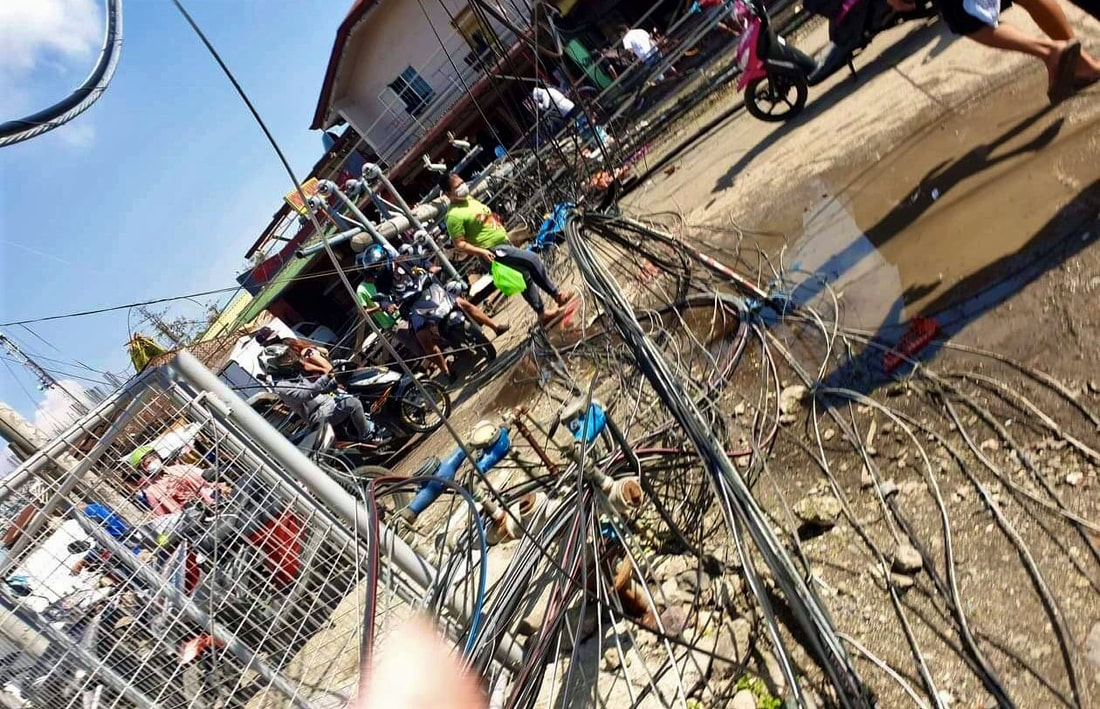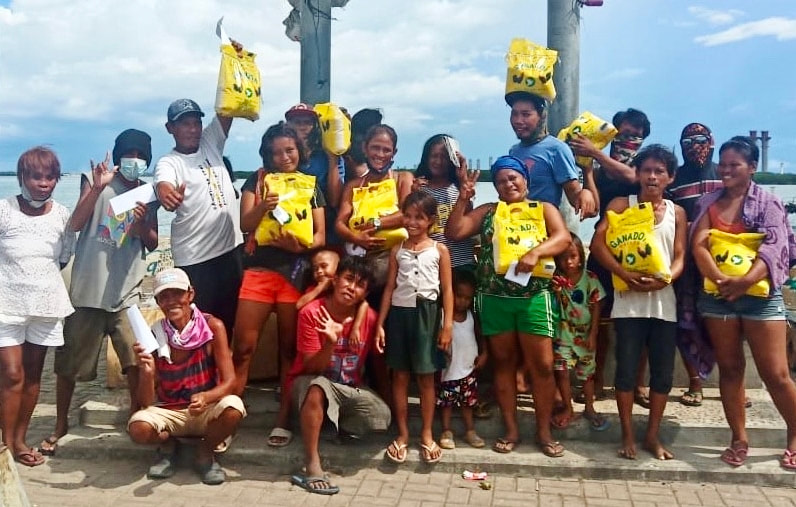|
‘I have always felt that ultimately along the way of life an individual must stand up and be counted and be willing to face the consequences, whatever they are. If we are filled with fear, we cannot do it. And my great prayer is always that God will save me from the paralysis of crippling fear, because I think when a person lives with the fear of the consequences for their personal life, they can never do anything in terms of lifting the whole of humanity.’ (Martin Luther King) I know that fear. I have sometimes experienced it as a vague, background yet seemingly ever-present existential angst. At other times, it has been a response to a specific perceived threat, whether real or imagined, that triggers an anxious feeling. At such times I have learned…and I’m still learning…to pause, breathe, pray and try not to panic. Fight-flight-freeze is an instinctive rather than reflective response that can leave us feeling stressed, powerless and stranded. A real challenge is how to avoid feeding that fear. We may play out all kinds of catastrophic scenarios in the imagination, an endless list of what-if scenarios, amplifying our worst anxieties. We may avoid people, situations or relationships, a kind of flight response, to avoid the risk of our fears actually materialising. Our world may become smaller as we shrink back, self-protect, attempt to keep ourselves safe from harm. (And sometimes that’s a price worth paying.) In his astonishing autobiography, however, Martin Luther King recounts the way he found to face the dangers (which included relentless physical threats, bombing of his home and, ultimately, assassination) – inherent to his calling to address deep-rooted social injustice – and yet still to persevere. It was to face directly his fear of death before God and, by faith, to let go of that fear. That released him to be the remarkable and courageous role model we still admire today.
8 Comments
‘It’s not what you look at that matters, it’s what you see.’ (Henry David Thoreau) Psychologist Albert Ellis, widely regarded as the founding father of what has today evolved into Cognitive Behavioural Therapy, noticed that different people responded differently to what were, on the face of it, very similar situations. Previously, you might have heard, ‘Person X feels Y because Z happened’. It assumed a direct causal relationship between emotions and events. Ellis’ observations challenged this, proposing that something significant was missing in the equation. After all, if this assumption were true, we could expect that everyone should feel the same way in circumstance Z. Curious about this, Ellis concluded that the critical differentiating and influencing factor that lays between emotions and events is belief. It’s what we believe about the significance of an event that affects most how we feel in response to it. Here we have person A who hears news of a forthcoming redundancy with fear and trepidation. He believes it will have catastrophic financial consequences for himself and his family. Person B receives the news with positive excitement. She believes it will provide her with the opportunity she needs to pursue a new direction in her career. Drawing on this insight, organisational researchers Lee Bolman & Terrence Deal proposed that, in the workplace, what is most important may not be so much what happens per se, as what it means. The same change, for instance, could mean very different things to different people and groups, depending on the subconscious interpretive filters through which each perceives it. Such filters are created by a wide range of psychological, relational and cultural factors including: beliefs, values, experiences, hopes, fears and expectations. This begs an important question: how can we know? Hidden beliefs are often revealed implicitly in the language, metaphors and narratives that people use. To observe the latter in practice, notice who or what a person or group focuses their attention on and, conversely, who or what appears invisible to them. Listen carefully to how they construe a situation, themselves and others in relation to it. Inquire in a spirit of open exploration, ‘If we were to do X, what would it mean for you?’; ‘If we were to do X, what would you need?’ This is about listening, engagement and invitation. Attention to the human dimension can make all the difference. A disaster unfolds. Viewed at a distance of 22,300 miles (35,880km) through the lens of a weather satellite in space, the super typhoon that hit the Philippines this week looks quite majestic, its swirling shape displaying a serene, mystical beauty about it. Viewed from ground zero in the eye of the storm, it could not have looked and felt more different. Zoom in now to Jasmin, a poor woman braced with her children, wind and rain battering their fragile home ferociously. Typhoon Rai is one of the strongest storms recorded on Earth this year with wind speeds of 150mph (240kph) as it slammed into the islands. The wind rips off her house roof viciously, as if lashing out with a merciless knife, and the windows shatter, exploding glistening shards of glass everywhere. She runs downstairs with her family to hide under the stairs, praying hard to Jesus, Saviour, in the pitch blackness of night with the deafening, terrifying roar above and around them. As morning breaks and the winds and rain start to subside, the devastation around them emerges from darkness like a war zone. The house looks like an empty shell and everything she had owned has been destroyed. (The poor have no savings – and no insurance). People are walking around, dazed and dismayed by what has just hit them. Power supplies are down and long wooden posts covered in tangled cables lay broken across the roads. Debris is everywhere. People’s homes and possessions are strewn around heartlessly on the streets, as if by some angry, deranged monster. Jasmin looks around for water. Nothing. People are fighting to get onto passing motorbikes to look for help in the city. The petrol price has leapt to £8 (US $10) per litre overnight and the bike fares have soared high with it. Banks are closed, ATMs down and shops broken. No cash. Emergency vehicles with supplies can’t get through, even if they are available and want to. The roads are impassable and impossible. The village is the epicentre of a disaster zone. The floodwater from the storm risks overwhelming the fragile sewage system, contaminating any fresh water that remains and creating a dangerous public health hazard. Fears arise that corrupt officials may covertly divert relief to their own families, friends and political supporters. All infrastructure is wrecked – and desperate people can become dangerous. The poor are left to pray, hope and fend for themselves. Jasmin calls me, briefly, with a weak and faltering phone signal. She urges me to be calm. ‘Jesus is with us’, she says, with a strength of conviction that makes my own faith feel weak and pallid by contrast. Her battery goes flat and the call breaks off. There’s nowhere to charge it and no access to cash to buy a top-up card. She’s still looking earnestly for water, her children are too, and there are long queues of scared and frustrated people everywhere. Her words are ringing loudly with me as I write this and await further news: ‘Jesus is with us.’ Light shines in darkness. Remember the poor. On the edge of a New Year, social media accounts have been bombarded with messages about how terrible 2020 has been and how we can’t get out of it fast enough. Of course, 2020 has posed some significant challenges; most notably, on the global stage, the Covid-19 pandemic. The challenges in the wealthier countries, where we have tended to make the most emotional drama out of it, pale into insignificance when compared to the those faced by the poorest. We’re not used to this level of vulnerability, uncertainty and threat. It has freaked us out and, perhaps in some ways, that’s a good thing.
My hope for 2021 is that this glimpse of vulnerability, of real fear and helplessness, will engender far greater empathy for those poorest people in the world who live with that anxiety every day. And not just empathy, but a greater resolve to do something tangible to bring about positive and sustainable change. I hope it will drive us re-evaluate our crazy consumerism that is pushing the world further into irreversible environmental disaster. I hope it will reveal, too, our fundamental interdependence; although reports of rich countries racing to buy-up Covid vaccines first fills me with near-despair. Yet there have been, for me, silver linings in the midst of all this. I’ve been grateful to God for the opportunity to live with my parents all year, to support each other during the lockdown and to spend valuable, irreplaceable time with them. I’ve been grateful for free technology that has allowed me, and others, to do so much online that would otherwise have been impossible. I’ve been grateful for the chance, with others, to support the poor in the Philippines; an experience that has often brought at least as much richness and joy to my life as to theirs. What have been your silver linings in 2020? At just 5 feet (152 cm) tall, this Filipina presents an imposing stature. She went out this week to provide emergency food and modest cash gifts to some of the poorest people in the Philippines, those who live at the roadside on zero income owing to the Covid-19 lockdown. She herself is very poor yet determined to share what she has for the benefit of strangers in need. She prays to Jesus, dons a face mask and heads out fearlessly. One family revealed they had barely survived until she arrived. They had been living on just boiled water with a little sugar stirred into it. No rice, and little hope. One group surrounded her when she at first appeared. Some men grabbed the bags of rice that she carried with her, skulking away in an attempt to avoid being caught. At that, she lifted her mask and yelled assertively: ‘Bring that back now, or I leave here with everything I came with.’ Slowly…the stealthy thieves reappeared, with guilty expressions on their faces now, and handed them back. She explained, ‘We are poor, but this is no way to conduct ourselves. We need to learn to share what we have, like Jesus.’ She then held out the sacks and cash, and every family went home with something real. I asked her if she had felt nervous, to be confronted and robbed like that in broad daylight. She was, after all, alone among strangers and anything could have happened. She said no, she wasn’t afraid, because she had prayed hard before setting out. ‘I know what it is to be poor, and I have lived my entire life among the poor.’ I reflected on how I might have acted defensively in response, annoyed by their attitude and fearful for my own safety. By contrast, she showed courage, empathy, faith and love. Question: When have you been at your most fearless? What made the difference for you? Are you an agent of hope - or of fear? It’s a stark choice. Faced with challenges that look and feel insurmountable, it’s easy to fall into fear. Some avoid fear by closing their eyes tightly, holding their breath, sticking their fingers in their ears and singing, ‘La la la’, hoping it will go away. Some try to avoid the situations, the relationships, the circumstances that evoke their fears. It sometimes works, but not often. Our fears have an annoying way of stalking and haunting us, tracking us down.
And so it is so often with those we lead, coach, train or facilitate in groups. What message do we model, communicate, inspire in others? I walked through fire last week. Well, on burning embers anyway. It was a charity fundraising event and I volunteered. In preparation beforehand, a trainer tested our fears in order to build resilience. We did all sorts of strange activities to overcome our inhibitions, culminating in breaking boards with bare hands and snapping an arrow end-on with my throat(!) Weird stuff. But it worked. The Firewalk was easy after that. It’s the same as exposure therapy: a gradual exposure to things we fear most in order to overcome our anxiety by facing them head-on and by doing them, not just thinking about them. Have you heard of P = P – I? Performance = Potential – Interference, based on Tim Gallwey’s Inner Game. Interference can be external or internal. Internal includes our fears of failure, of rejection, of humiliation, of getting it wrong. So I’m intrigued by how often e.g. God in the Bible says, ‘Don’t be afraid’. There’s a deep spiritual, existential dimension to this. Who or what do we place our trust in, our confidence in? What enables us to muster courage, to take a stance, in the face of our fears? There’s a psychological dimension to this too. How far do we take a breath, reveal our anxieties, take a risk, take courageous steps forward in the face of fear - to build the belief and hope in others that they can do the same? |
Nick WrightI'm a psychological coach, trainer and OD consultant. Curious to discover how can I help you? Get in touch! Like what you read? Simply enter your email address below to receive regular blog updates!
|








 RSS Feed
RSS Feed